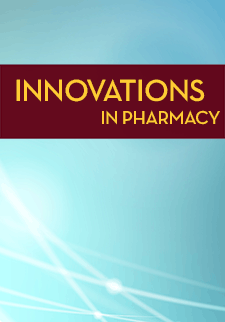Remember Your MEDS: Medication Education Delivers Success
Kelsey M. Rife
Sarah E. Ginty
Elizabeth M. Hohner
Heather R. Stamper
Kristen F. Sobota
David R. Bright
DOI: https://doi.org/10.24926/iip.v3i1.250
Keywords: medication adherence, adherence tools, compliance, student pharmacists
Abstract
Background: Medication adherence is one of the largest barriers to better patient outcomes today. As pharmacists and student pharmacists expand their roles with community outreach projects, they have the potential to make a huge impact on improving adherence.
Objective: To improve medication adherence through patient counseling and constructive resources, and to determine patient preferences of adherence tools.
Methods: Student pharmacists partnered with a 340B pharmacy to promote the importance of medication adherence. Patients were counseled in an initial 10 minute session, and then given the opportunity to receive one or more of the following adherence tools: a pill box, timer, reminder refrigerator magnets, calendar stickers, refill reminder phone calls and/or text message reminders. A pre-survey was conducted to establish the patients' baseline medication adherence using the validated ©Morisky Medication Adherence Scale (©MMAS-8). After three months, students conducted the post-survey via the ©MMAS-8 by calling the patients and asking them questions about the helpfulness of the adherence tools as well as the effectiveness of the initial counseling visit.
Results: Sixty five patients with hypertension enrolled in the study, and 51 patients completed both the pre- and post-surveys. Patients improved from a 6.02 (SD +/- 1.62) average pre-score to a 6.83 (SD +/-1.25) average post score (p < 0.001). Pill boxes, text message reminders, and calendar stickers were respectively ranked as the top 3 most helpful tools studied. The refrigerator magnets were also considered helpful by most patients who used them. The timers were ranked the least helpful, mostly due to difficulty of use.
Conclusion: Student pharmacists can have a positive impact on medication adherence through simple counseling and offering effective adherence tools.
Type: Student Project


